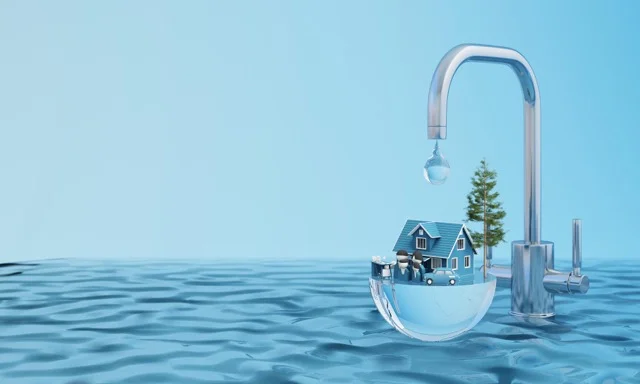The 2-Minute Rule for Reclaim Waste
The 2-Minute Rule for Reclaim Waste
Blog Article
The 8-Minute Rule for Reclaim Waste
Table of ContentsNot known Details About Reclaim Waste Not known Factual Statements About Reclaim Waste Reclaim Waste Can Be Fun For EveryoneReclaim Waste Things To Know Before You Get ThisWhat Does Reclaim Waste Mean?
Explore the types, occurrences, and types of fluid waste. Residential sewage waste refers to the waste and products from a household septic container. This kind of waste is created by humans in houses, institutions, and other structures. This only consists of sewage-disposal tanks that have a drain area. The proper management and disposal of domestic sewage waste call for liquid waste to be moved to a sewer treatment plant where the proper approaches and devices are applied to detoxify and take care of waste.
Commercial waste often includes prospective threats, such as combustible products or a mixture of liquid and solid waste items, and needs a more sophisticated and comprehensive disposal process. The disposal of commercial waste usually involves the purification of waste prior to transport to ensure risk-free and appropriate disposal. Hazardous waste is created from byproducts and overflow of industrial processes and manufacturing.
This kind of waste can not utilize the exact same sewer management transport or procedures as septic or commercial liquids. The hazardous waste management procedure calls for the assessment and testing of liquid waste prior to it undertakes the disposal process (industrial wastewater treatment). Runoff waste is the fluid waste that originates from overflow and excess stormwater in highly populated locations or cities
Drainage waste can create contamination and flooding otherwise taken care of correctly. Discover more concerning sewage system cleansing and waste administration. Ensuring correct waste administration can stop catastrophes and minimize environmental damage. Both people in property setups and professionals in industrial or manufacturing markets can gain from recognizing the processes and laws of fluid waste administration.
About Reclaim Waste
Get in touch with PROS Solutions today to learn regarding our waste administration and disposal services and the appropriate means to take care of the liquid waste you create.
(https://soundcloud.com/reclaimwaste1)This so-called 'wastewater' is not only a vital source however, after treatment, will certainly be released to our land, waterways or the sea. Used water from commodes, showers, baths, cooking area sinks, laundries and commercial procedures is understood as wastewater.

water made use of to cool equipment or tidy plant and devices). Stormwater, a form of wastewater, is overflow that moves from agricultural and city locations such as roofing systems, parks, gardens, roadways, courses and gutters right into stormwater drains, after rain. Stormwater streams neglected straight to neighborhood creeks or rivers, at some point getting to the sea.
About Reclaim Waste
In you could look here Queensland, most wastewater is dealt with at sewer therapy plants. Wastewater is carried from residential or industrial sites through a system of sewers and pump terminals, referred to as sewerage reticulation, to a sewage therapy plant. City governments construct, keep and run most sewage treatment plants. Operators are certified under the Environmental Security Act 1994 to release treated wastewater at an appropriate ecological criterion right into rivers.
The Division of Natural Resources encourages city governments concerning handling, operating and maintaining sewerage systems and treatment plants. In unsewered locations, city governments may need homeowners to install individual or household sewer therapy systems to treat domestic wastewater from toilets, kitchens, bathrooms and washings. The Department of Natural Resources authorizes the use of household systems when they are confirmed to be efficient.
In some new neighborhoods, therapy of some stormwater to eliminate litter, sand and gravel has actually started utilizing gross toxin catches. Wastewater treatment takes place in four phases: Removes strong issue.
Uses small living organisms knows as micro-organisms to damage down and get rid of continuing to be dissolved wastes and great fragments. Micro-organisms and wastes are included in the sludge.
Reclaim Waste Things To Know Before You Buy
Nutrient elimination is not readily available at all sewer therapy plants because it requires expensive specialised tools. It is ending up being more common in Queensland. Clear fluid effluent generated after therapy may still contain disease-causing micro-organisms. If this effluent is released right into waterways such as rivers or the sea, the micro-organisms will ultimately die out.

Most wastewater moves into the sewage system. Under the Act, neighborhood governments provide authorizations and permits for environmentally pertinent activities (ERAs) involving wastewater launches that could have a regional effect.
Top Guidelines Of Reclaim Waste
Otherwise, samples are considered lab evaluation. Frequently numerous examinations are required to develop the degrees of each of the various pollutants such as oils, heavy metals and chemicals in water. Monitoring offers accurate info about water high quality and can verify that permit conditions are being met. The details obtained with monitoring provides the basis for making water high quality choices.
Report this page